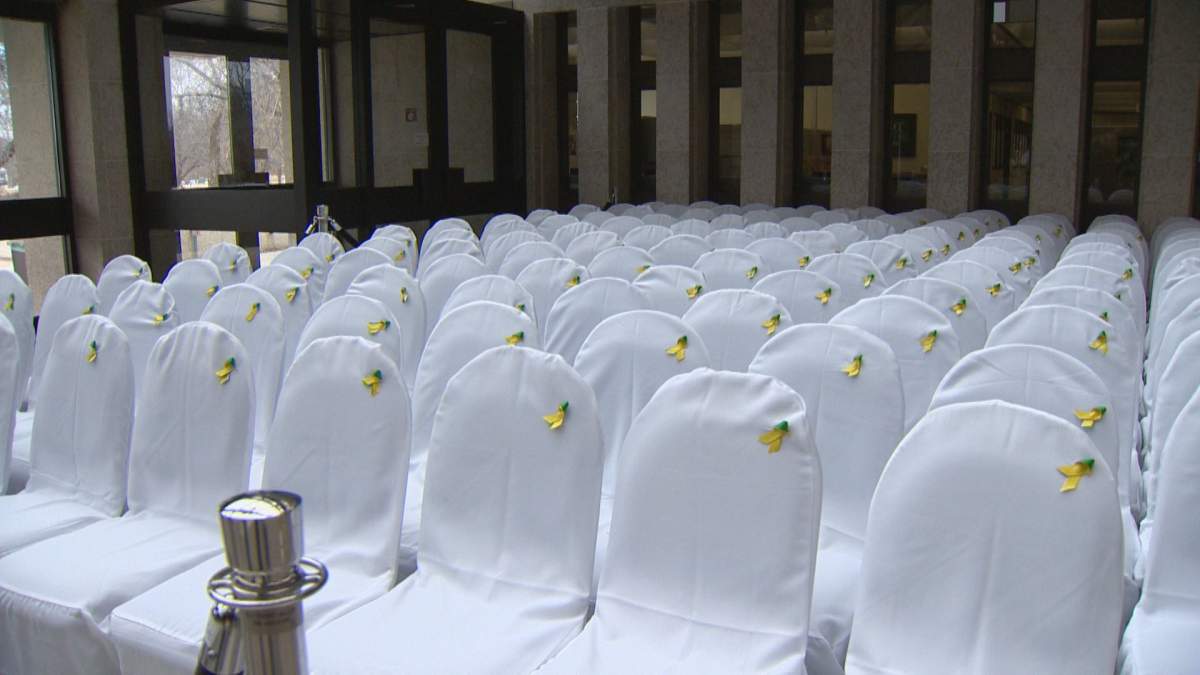REGINA – Dozens are marking Saskatchewan’s second annual Missing Persons Week.

An official ceremony was held Monday morning at the T.C Douglas Building.
“Whenever one person goes missing, that’s one too many. We’ll continue to work on the issue, but we’re spending a lot of time and a lot of energy on this problem,” said Gordon Wyant, Justice Minister.
Tucked behind a dark velvet rope at the observance were 118 chairs; one for each long-term missing persons cases in Saskatchewan.
According to the Saskatchewan Association of Chiefs of Police, there are 87 missing men (36 Aboriginals, 50 Caucasians, and 2 visible minorities) while there are 31 missing women (17 Aboriginals, and 14 Caucasians).

Get breaking National news
Karina Wolfe is one of those women.
“When I realized that she was gone, I felt so hurt, and I was angry, I couldn’t sleep,” said Carol Wolfe via ASL interpreter Erika Hummelt from Saskatchewan Deaf & Hard of Hearing Services.
Karina was 20 when she was last seen four years ago.
“It was the morning of my birthday. She has never once missed my birthday ever, and the whole day went past and I heard nothing. So July 20, I reported her to the police that she was missing,” said Wolfe.
Wolfe should be celebrating Karina’s 24th birthday on Wednesday, but instead she’s marking a different kind of observance.
“It is tough, you know. I feel very hurt,” said Wolfe. “There’s so many people, right? So many people missing just like my daughter, and I don’t really have words for it. It hurts so much. It really hurts to think of all the other people that are out there missing.”
The list of 118 missing cases date back to 1935.
“We never give up. It doesn’t matter how lengthy or how historical a case is. It still remains a priority,” said Brenda Butterworth-Carr RCMP Saskatchewan’s Commanding Officer.
This year’s Missing Persons Week explores the reasons why people go missing, and also how to prevent it.
“Keeping family members, loved ones informed as to your movements and your actions if you’re out for the evening,” said Troy Hagen, police chief of the Regina Police Service.
He also warned against hitchhiking, and also recommended taking care when meeting people from the internet in person. The tip may seem obvious, but the devastating outcomes are real, and so are the effects on the families.
“I try and put myself into their place, but it’s very challenging for me to even do that. I think unless you’ve experienced this, I don’t think you can quite properly appreciate how challenging and difficult it would be,” said Hagen.








Comments
Want to discuss? Please read our Commenting Policy first.